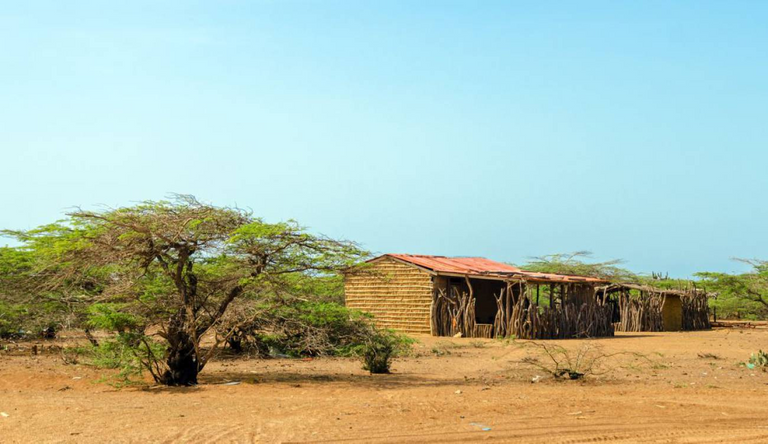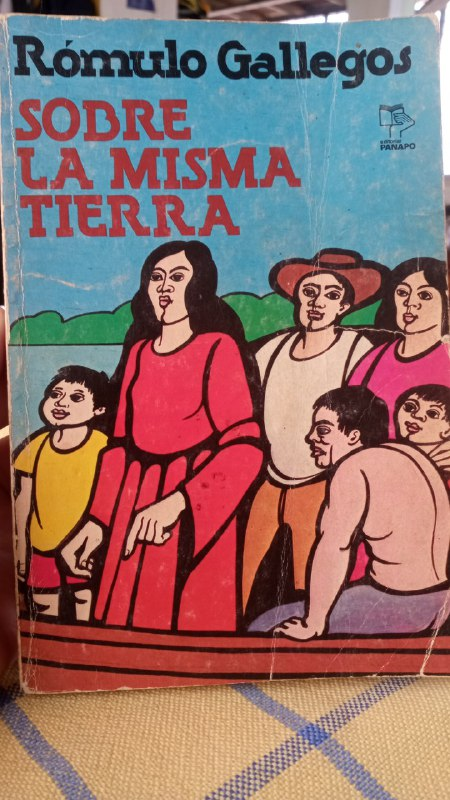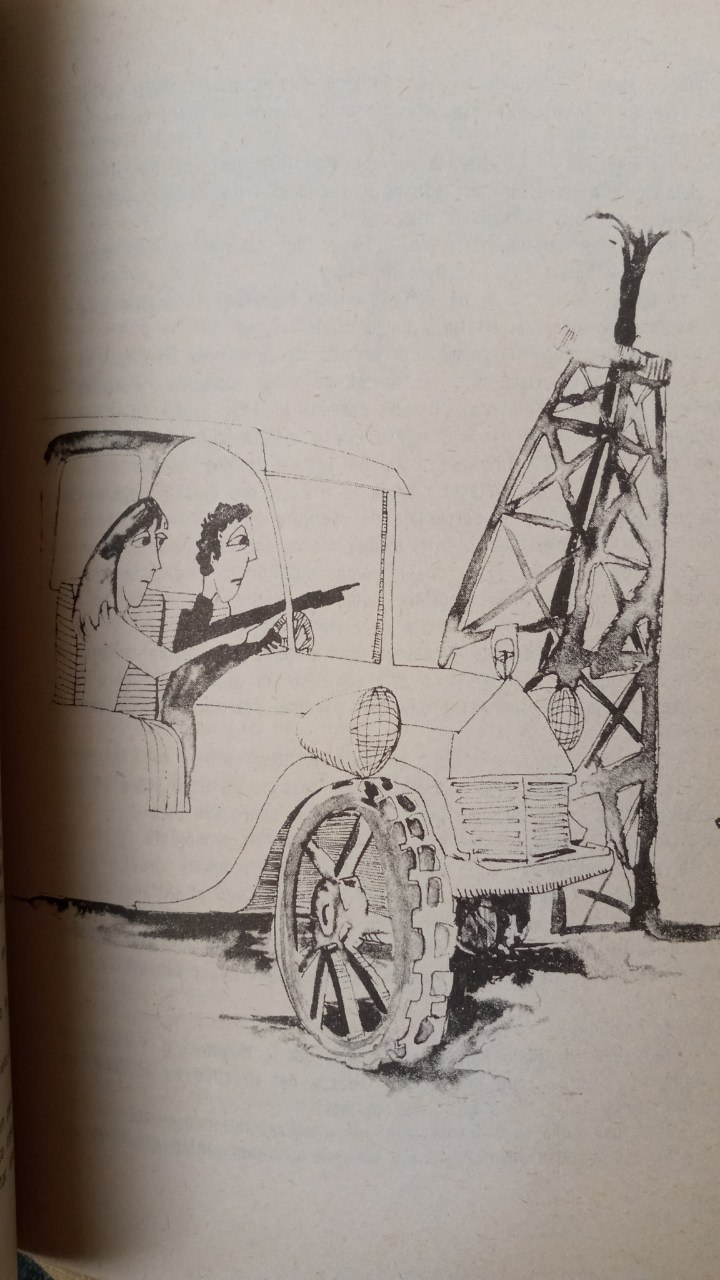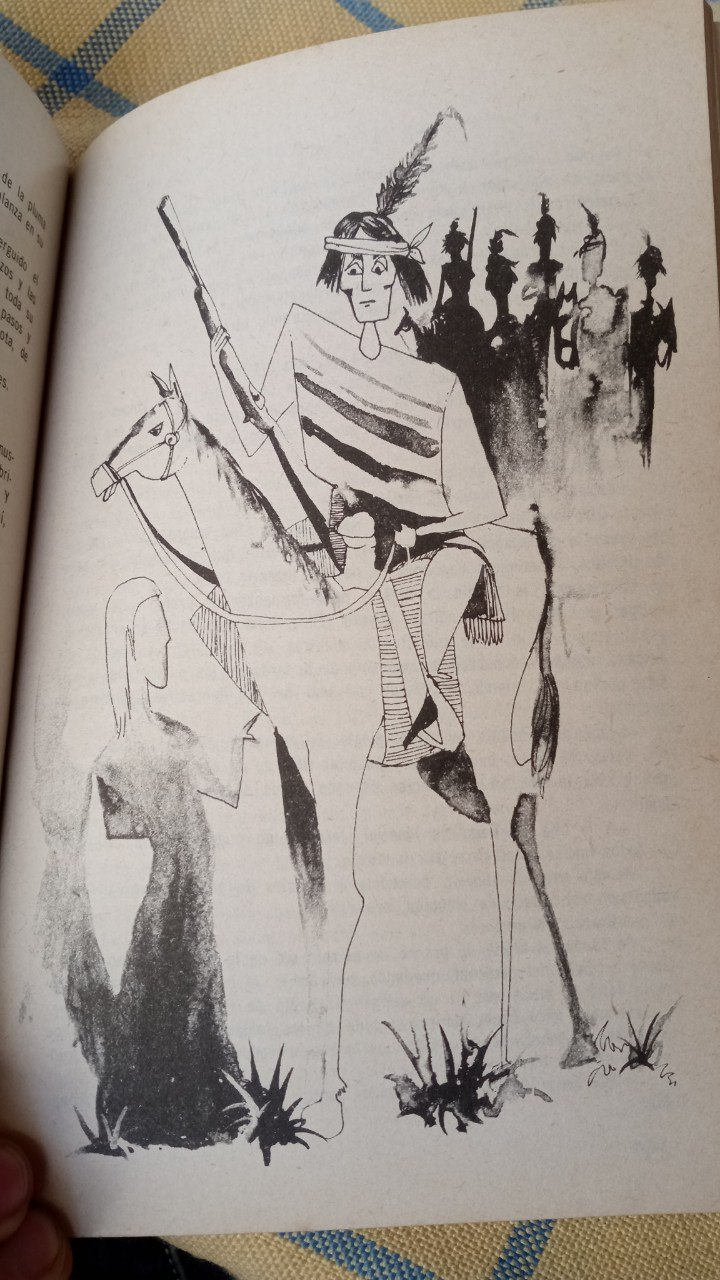El año 2014 tuvo muchas particularidades. Entre ella fue que hubo un par de meses en los cuales solo podíamos salir de casa para cosas extremadamente necesarias, como lo era hacer mercado, esto debido por las protestas llevadas a cabo en contra del gobierno nacional y la brutal represión que existía en la calle en esos tiempos.
en ese tiempo tenía 16 años, y aprovechaba el tiempo libre para poder leer muchos libros que había en mi casa. Dentro de esos libros se encontraba uno llamada “sobre la misma tierra” escrito por Rómulo Gallegos, quien además de ser un expresidente, considero que en muchas de sus historias relata de una forma cercana y apasionante el folklore venezolano, como difícilmente otro escrito lo ha hecho la historia de mi país.
No tenía expectativas, no sabía mucho del estilo de este autor cuando empecé a leer el libro y en un principio la redacción me pareció un poco confusa, pero en el momento en que me enganche no pude soltarlo.
Ambientada en la guajira venezolana, empieza narrando las aventuras de Demetrio Montiel, un contrabandista de mercancías y de indios guajiros, quien en uno de sus viajes tiene una hija, llamada Remota Montiel, quien es cuidada por sus tías, y en vista que sus tías la iban a ofrecer por ser virgen y llegar a la adolescencia (siguiendo la tradición guajira), el padre biológico de la niña decide raptarla y entregarla a su hermana y el esposo de esta, quienes la adoptan y la llevan a vivir a USA, lugar donde adopta el nombre de Ludmila Wimar. Pero luego de que sus padres adoptivos murieran, Ludmila regresaría al Estado Zulia, donde retomaría el nombre de Remota y trataría de recuperar sus orígenes.
El libro narra de una forma increíble la miseria, atraso y abusos a los que ha estado sometida la región de la guajira históricamente, lo cual entra en mayor contraste cuando se le compara con el gran desarrollo económico y social que estaba experimentado el país, pero sobre todo el estado Zulia (uno mayormente petrolero) con el boom petrolero.
Describiéndola como una zona árida y asilada, Gallegos nos muestra una tierra ancestral donde muchos de sus habitantes no se sentían identificados por las leyes o el Estado al cual pertenencia, sino con la lengua, tradiciones e historias de su pueblo Guajiro.
Destaca igualmente el personaje de Demetrio Montiel, quien se dedicaba al contrabando de mercancías a la frontera colombiana, actividad común en la zona, así como la práctica del contrabando de indios, quienes eran usados en la realidad como esclavos o sometidos muchas veces a casos de esclavitud sexual, y que tendría gran peso dentro del final de la obra.
Considero que la forma en que se describe de una forma directa la pobreza, la esclavitud y muchas veces la incomprensión y apatía hacia la cultura guajira por parte del Estado venezolano, así como de sus autoridades. Entrando estos elementos en mayor contraste cuando se muestra también el increíble desarrollo económico social y vivía el país gracias al boom petrolero durante buena parte del siglo XX.
A modo de conclusión, uno puede pensar que el paso del tiempo llevaría a que esto mejorara, y que muchos de estos problemas se mantengan en la ficción de un libro del siglo XX, pero al día de hoy, de acuerdo con el informe la Comisión para los Derechos Humanos del estado Zulia, el 71% de los hogares de la Guajira viven por debajo de la línea de pobreza extrema, señalando además que estas etnias padecen el «abandono institucional y gubernamental acostumbrado por los gobiernos de turno, con el agravante de que en los últimos años la desatención ha llegado a tal extremo que no se garantizan las condiciones mínimas de subsistencia».




The year 2014 had many peculiarities. Among them was that there were a couple of months in which we could only leave the house for extremely necessary things, such as going to the market, due to the protests against the national government and the brutal repression that existed in the streets at that time.
At that time I was 16 years old, and I took advantage of my free time to read many books that I had at home. Among those books was one called "Sobre la misma tierra" written by Rómulo Gallegos, who besides being a former president, I consider that in many of his stories he tells in a close and passionate way the Venezuelan folklore, as hardly any other writing has done the history of my country.
I had no expectations, I didn't know much about this author's style when I started reading the book and at first the writing seemed a bit confusing, but the moment I got hooked I couldn't put it down.
Set in the Venezuelan Guajira, it begins by narrating the adventures of Demetrio Montiel, a smuggler of goods and Guajira Indians, who on one of his trips has a daughter, named Remota Montiel, who is cared for by her aunts, and in view of the fact that her aunts were going to offer her for being a virgin and reaching adolescence (following the Guajira tradition), the girl's biological father decides to kidnap her and give her to her sister and her husband, who adopt her and take her to live in the USA, where she adopts the name of Ludmila Wimar. But after her adoptive parents died, Ludmila would return to Zulia State, where she would take the name of Remota and try to recover her origins.
The book narrates in an incredible way the misery, backwardness and abuses to which the region of La Guajira has been subjected historically, which enters in greater contrast when compared to the great economic and social development that the country was experiencing, but especially the state of Zulia (a mostly oil-producing state) with the oil boom.
Describing it as an arid and isolated area, Gallegos shows us an ancestral land where many of its inhabitants did not feel identified by the laws or the State to which they belonged, but with the language, traditions and stories of their Guajiro people.
It also highlights the character of Demetrio Montiel, who was dedicated to smuggling goods to the Colombian border, a common activity in the area, as well as the practice of smuggling Indians, who were used in reality as slaves or often subjected to cases of sexual slavery, and that would have great weight within the end of the work.
I consider that the way in which poverty, slavery and many times the incomprehension and apathy towards the Guajira culture on the part of the Venezuelan State, as well as its authorities, is described in a direct way. These elements enter into greater contrast when it also shows the incredible social and economic development that the country experienced thanks to the oil boom during much of the twentieth century.
By way of conclusion, one might think that the passage of time would lead to an improvement, and that many of these problems would remain in the fiction of a 20th century book, but today, according to the report of the Commission for Human Rights of Zulia State, 71% of the households in the state of Zulia are still living in poverty, 71% of the households in La Guajira live below the extreme poverty line, pointing out that these ethnic groups suffer the "institutional and governmental abandonment that is customary for the governments in power, with the aggravating circumstance that in recent years the neglect has reached such an extreme that the minimum subsistence conditions are not guaranteed".
Congratulations @kafkasaurio! You have completed the following achievement on the Hive blockchain and have been rewarded with new badge(s):
Your next target is to reach 50 comments.
You can view your badges on your board and compare yourself to others in the Ranking
If you no longer want to receive notifications, reply to this comment with the word
STOPTo support your work, I also upvoted your post!
Check out the last post from @hivebuzz:
Support the HiveBuzz project. Vote for our proposal!
Ya me provocó leer esa novela, que bueno que hayas aprovechado ese tiempo para leer, la literatua de Gallegos es una joya de gran valor. Gracias por tu reseña.
Es como dices, una joya de gran valor. Nos muestra una Venezuela fantástica llena de misterios e historias.